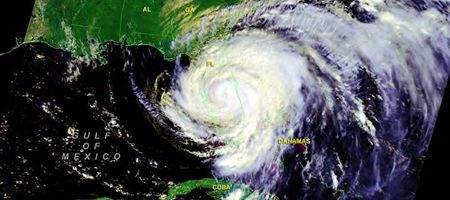Extreme weather events over the last ten years have cost the US over $14 billion in health costs alone, researchers have calculated.

The team examined the health costs of six events between 2000 and 2009. They found that, over this period, the ozone air pollution accounted for $6.5 billion.
The 2002 West Nile virus outbreak in Louisiana created $207 million in healthcare costs, and the 2003 Southern California wildfires $578 million.
The Florida hurricane season of 2004 generated $1.4 billion in healthcare costs, and the 2006 California heat wave$5.3 billion. The 2009 flooding of North Dakota’s Red River led to $20 million in health costs.
“When extreme weather hits, we hear about the property damage and insurance costs. The healthcare costs never end up on the tab,” says lead author Kim Knowlton of the Natural Resources Defense Council (NRDC).
“Right now, there’s a gaping hole in our understanding of the health-related costs of climate change. This report begins the work to fill that void. Only by having a clear sense of health impacts and their costs, can we work to reduce them.”
Between them, the six events led to over 760,000 extra interactions with the halth care system. There were around 1,689 premature deaths, 8,992 hospitalizations, 21,113 emergency room visits and 734,398 outpatient visits, says the team.
The authors point out that they haven’t picked the most severe disasters during that period – there’s no Hurricane Katrina, for example – but instead went for events in the middle of the severity range.
“What Americans are being confronted by from this record-breaking year of extremes – storms, floods, heat, drought, wildfires – is increasingly the shape of things to come, if climate change continues unabated,” Knowlton warns.
“But while people are beginning to understand these local costs of climate change, there’s still a disconnect between climate change and our health.”






